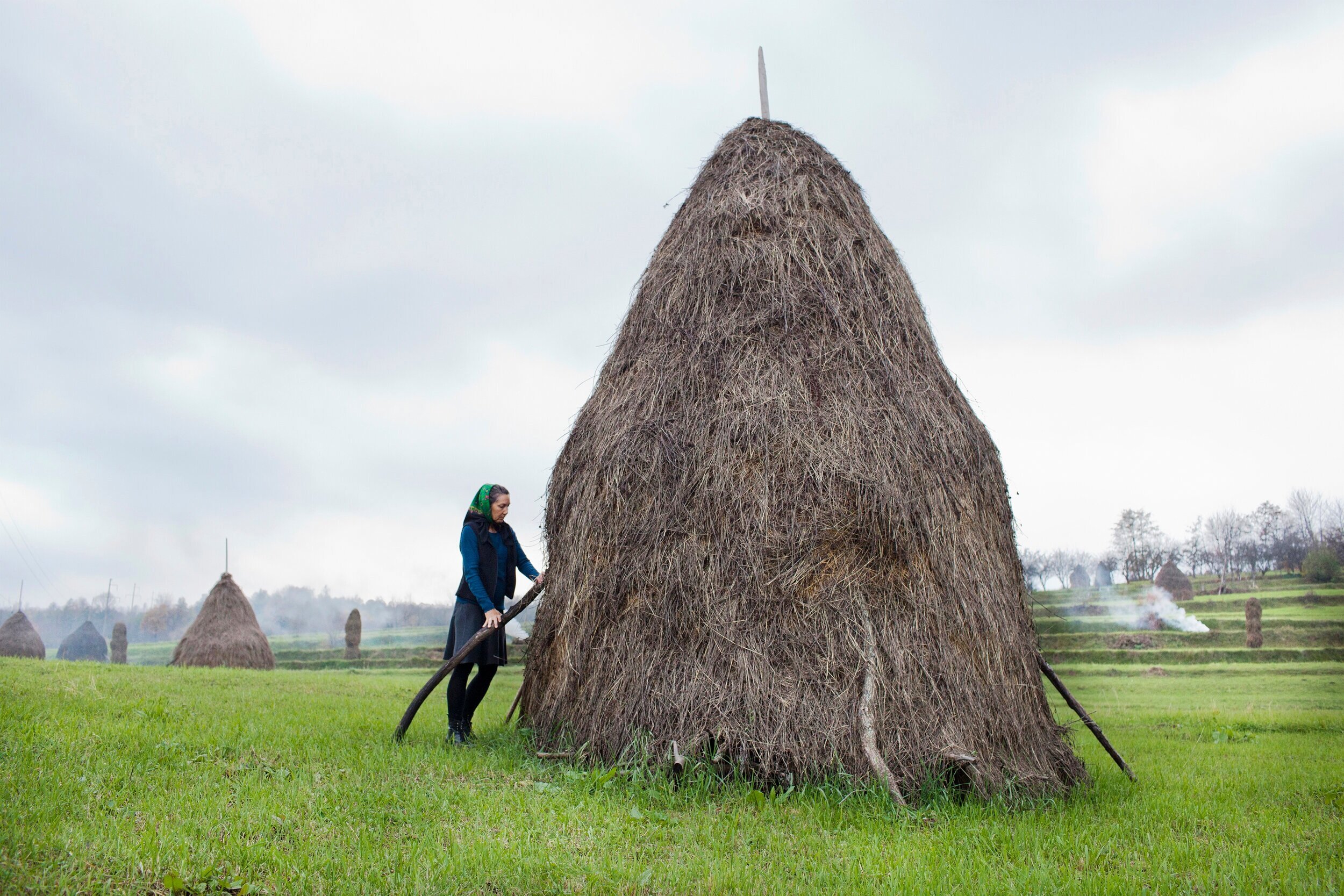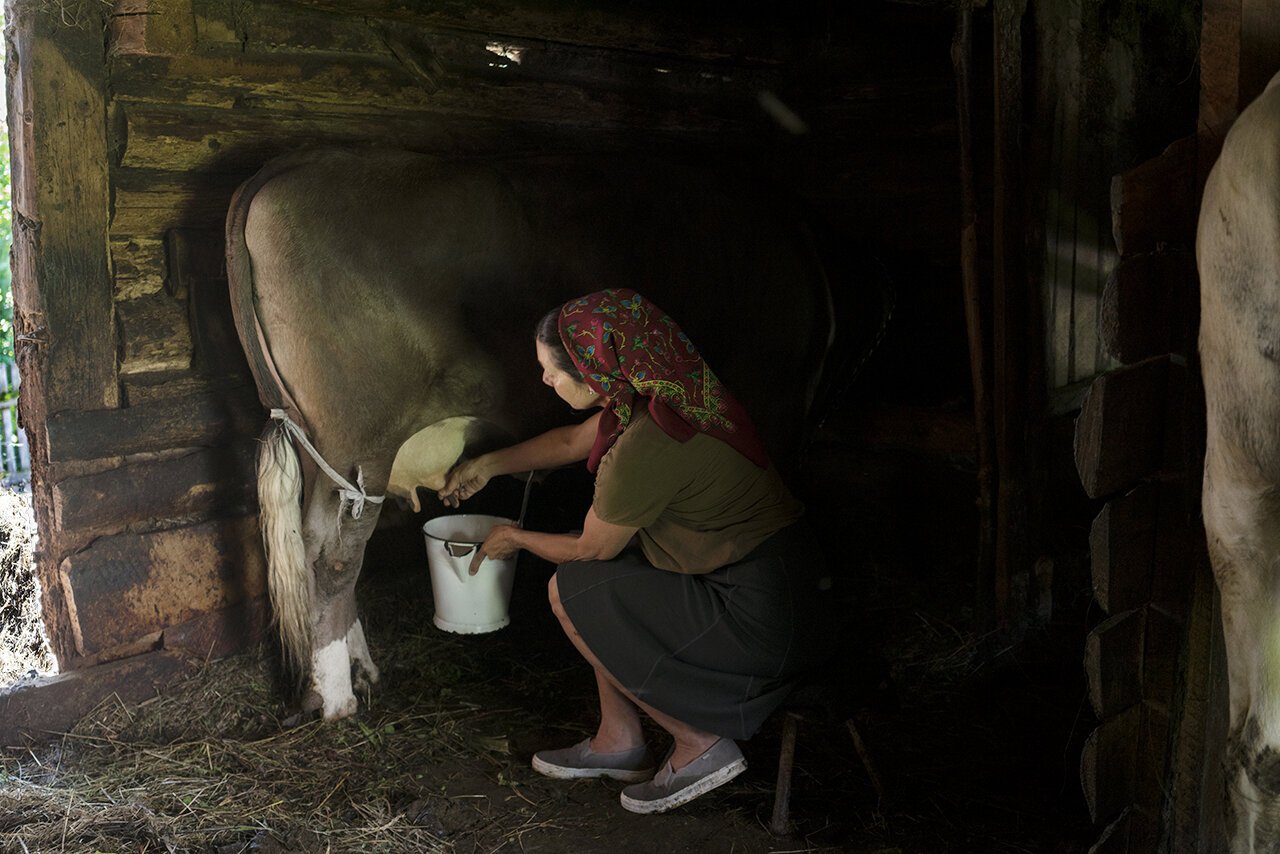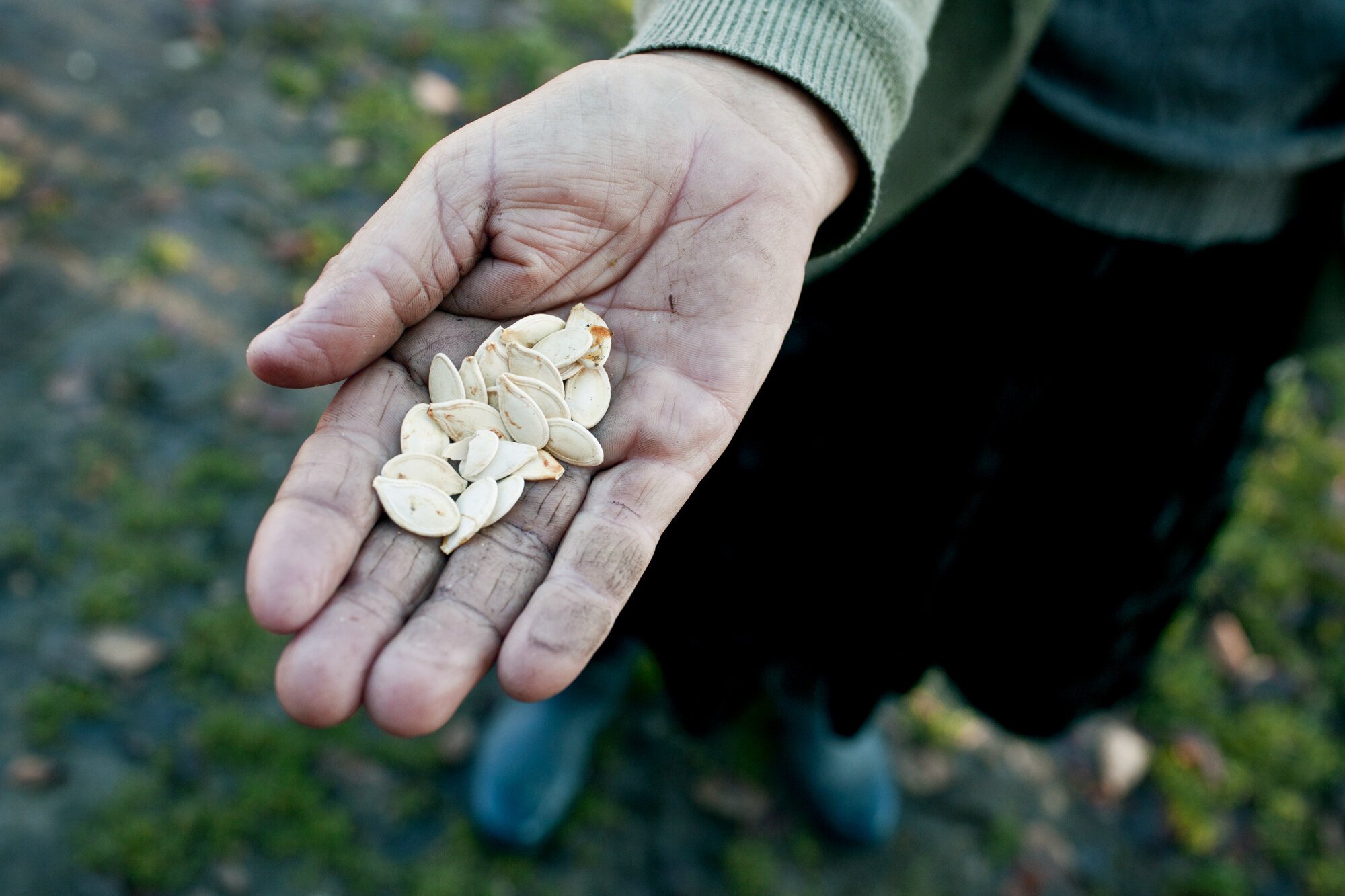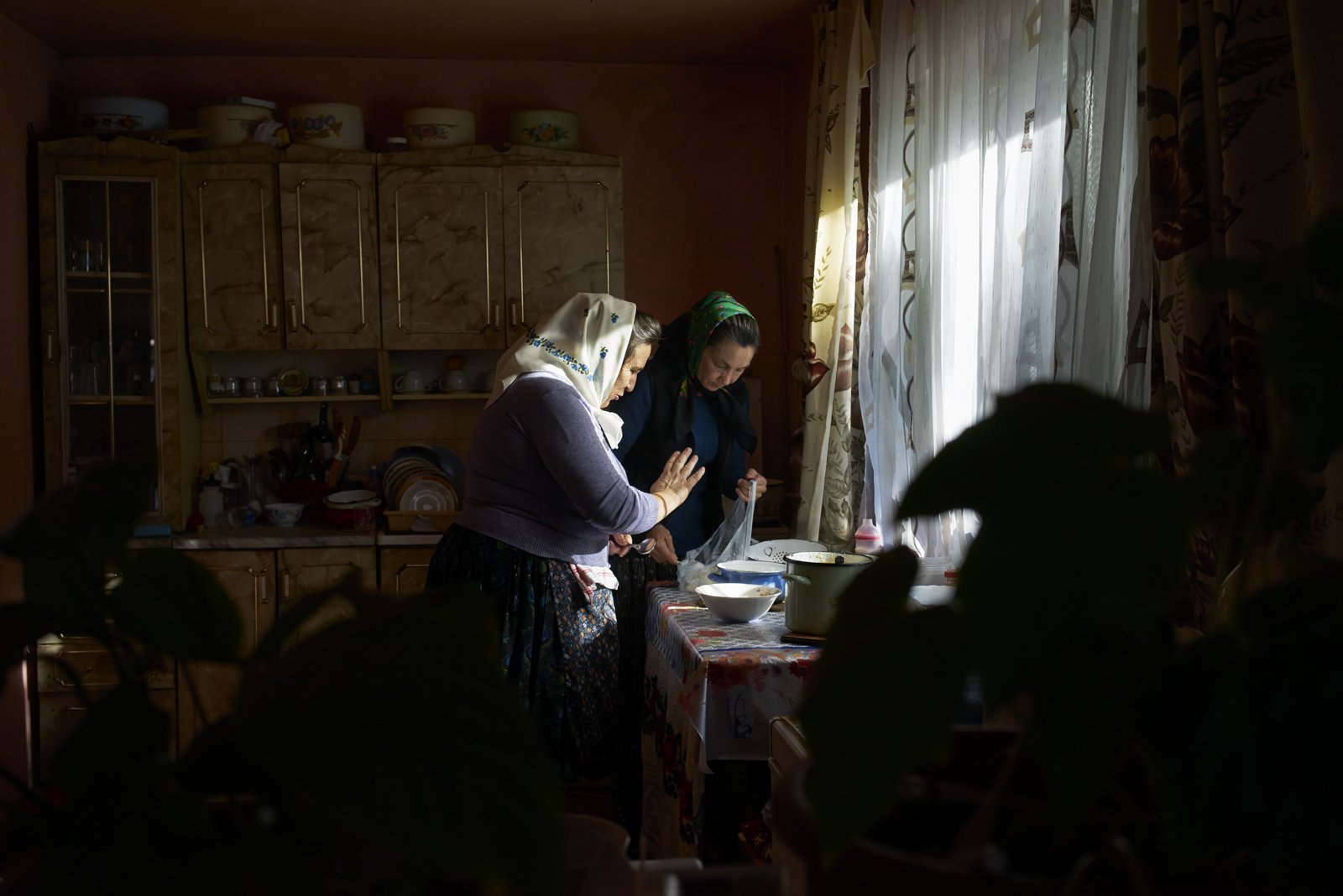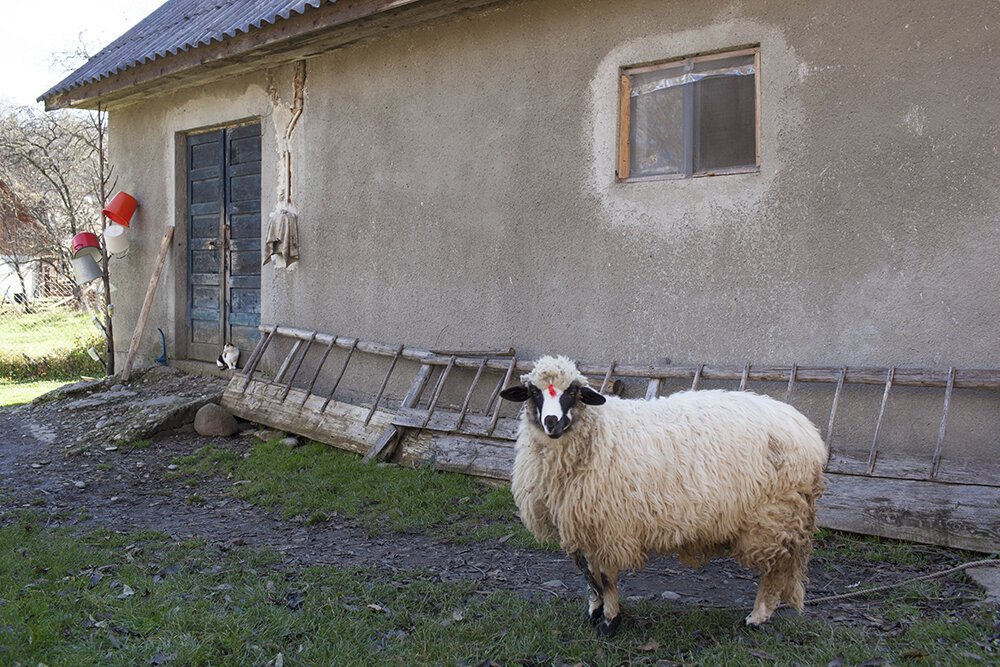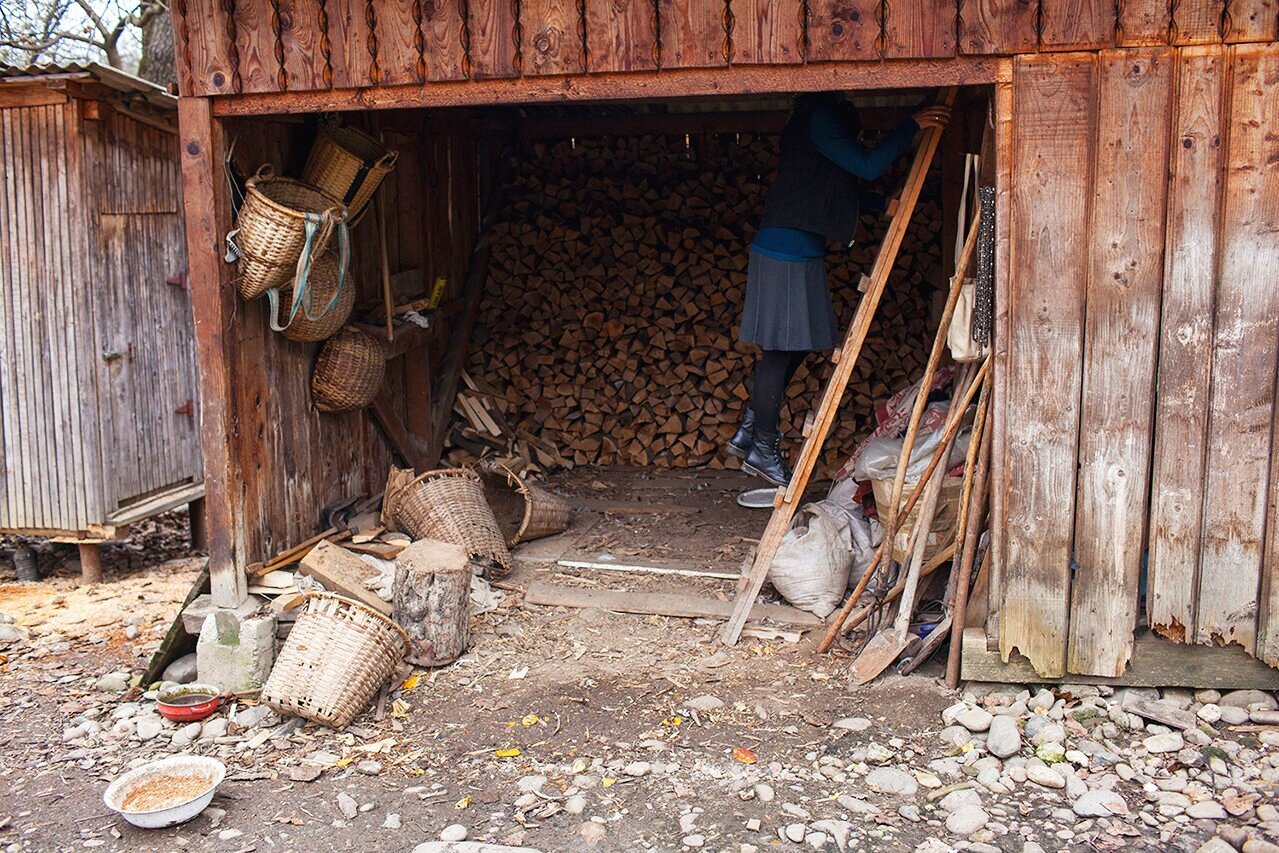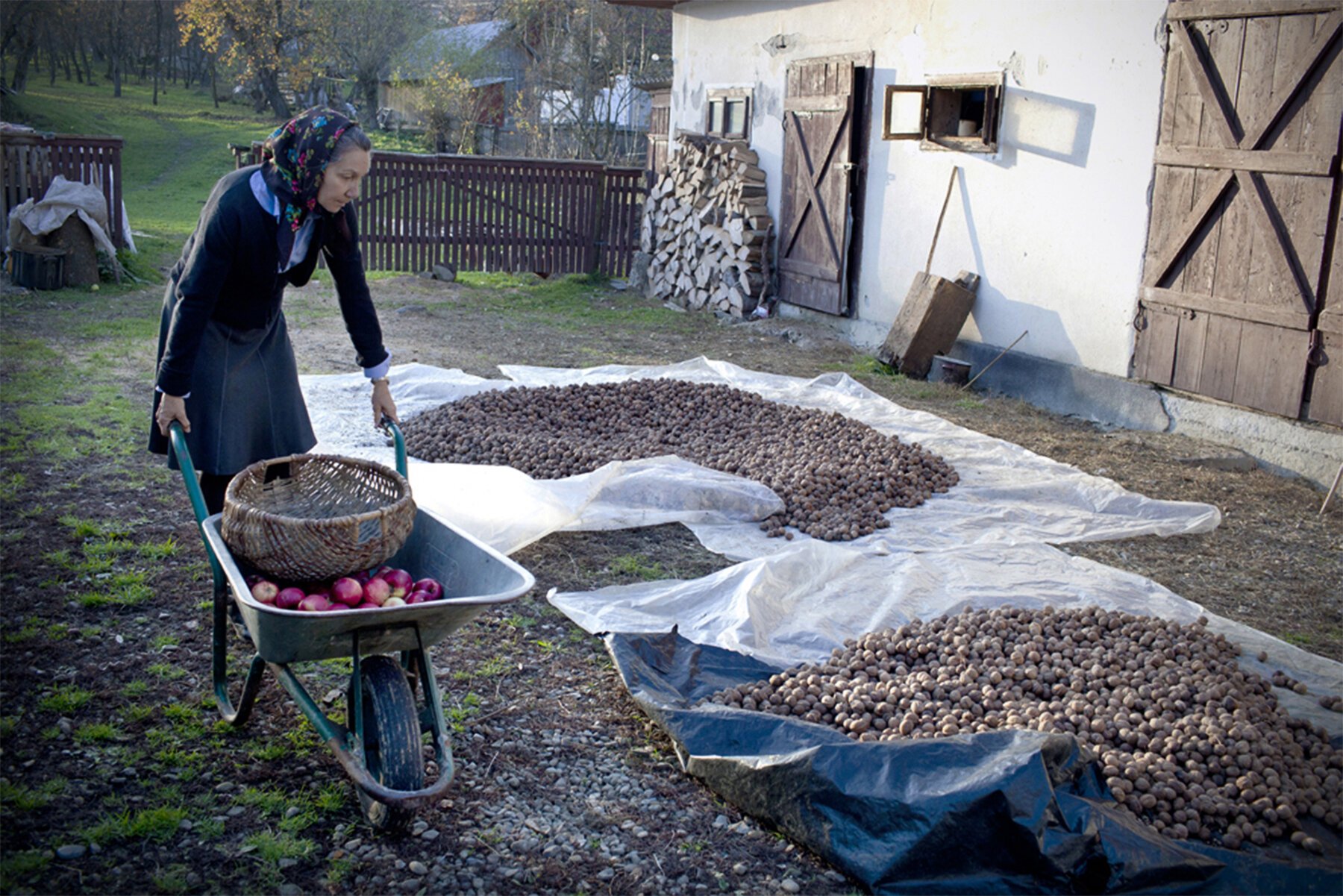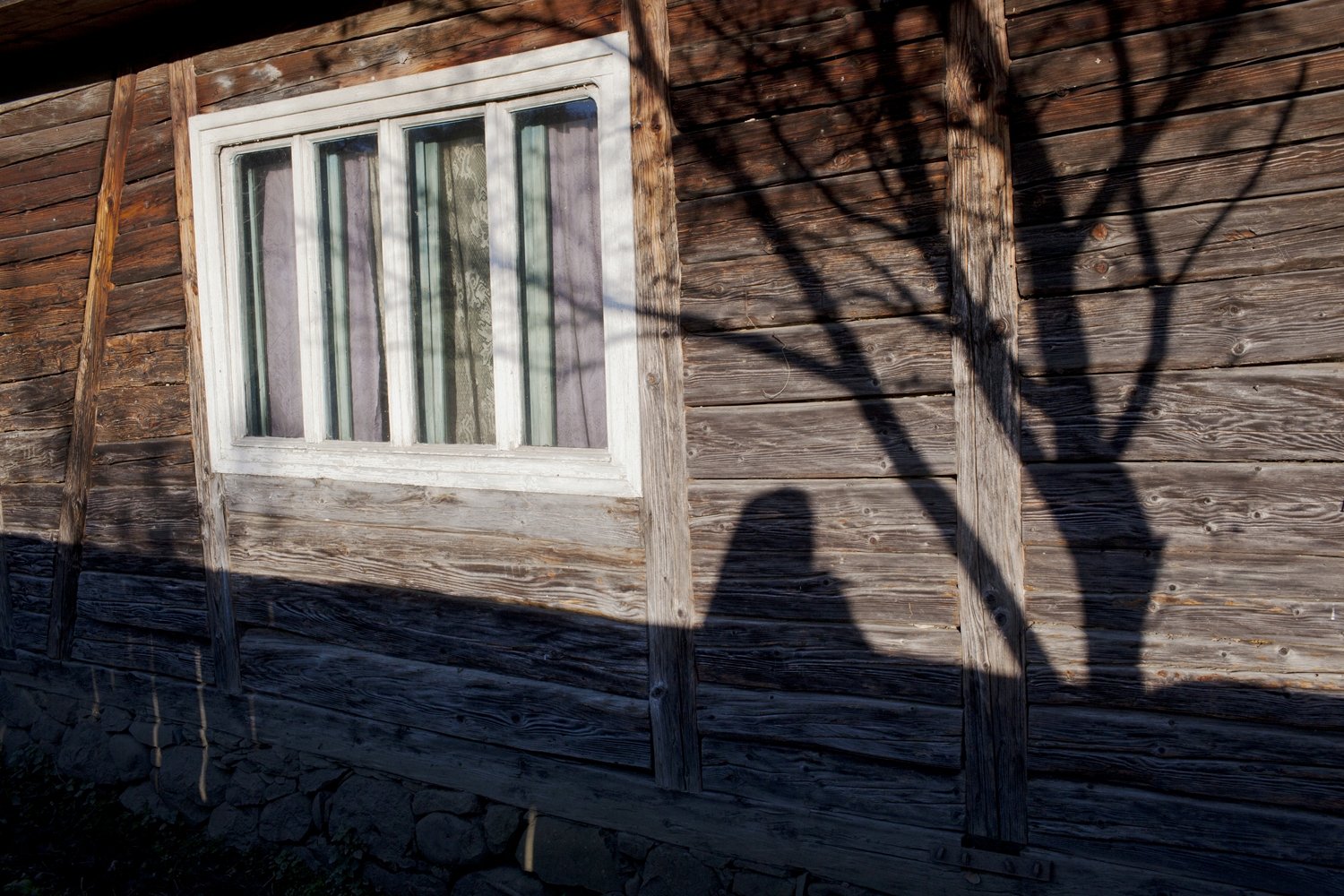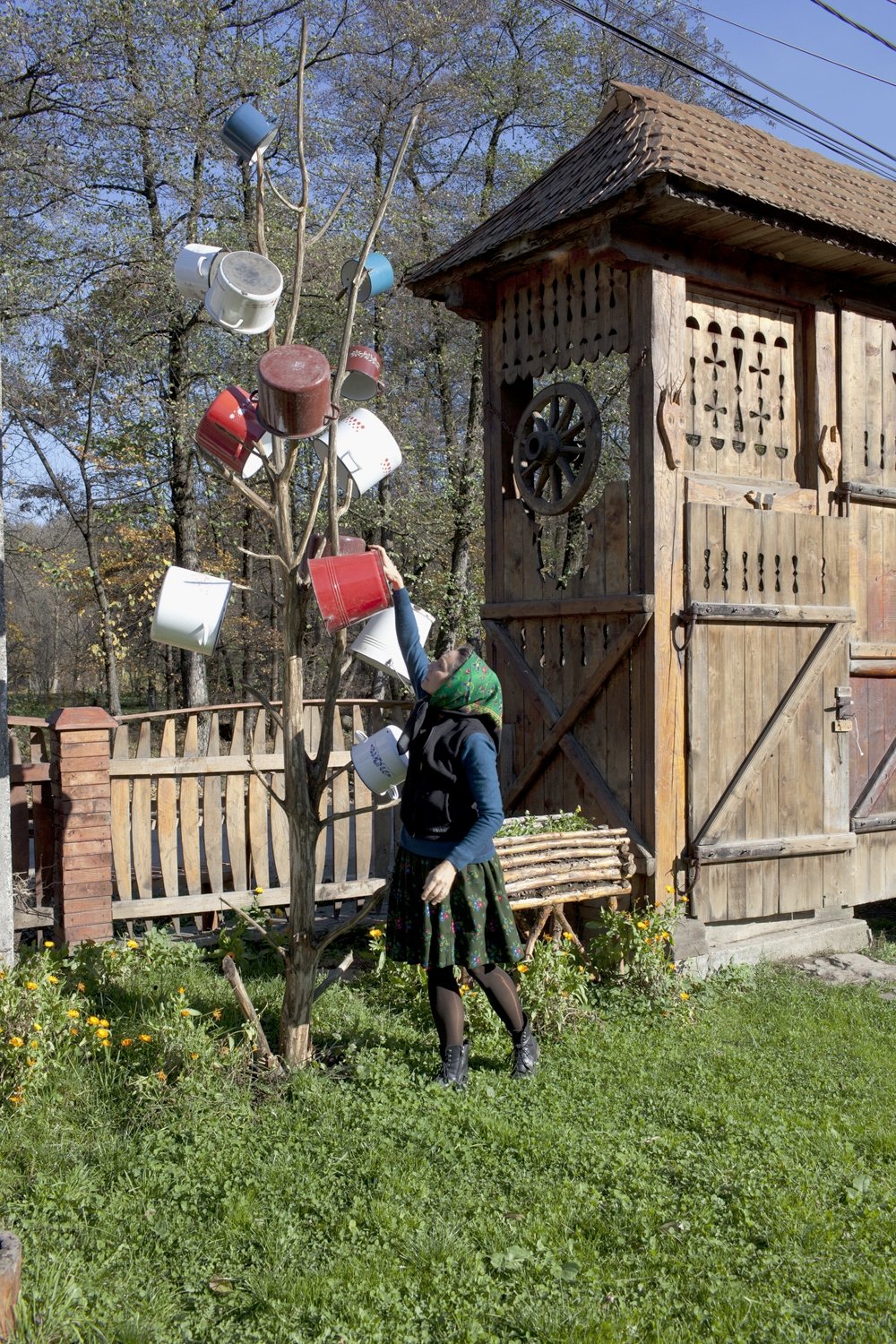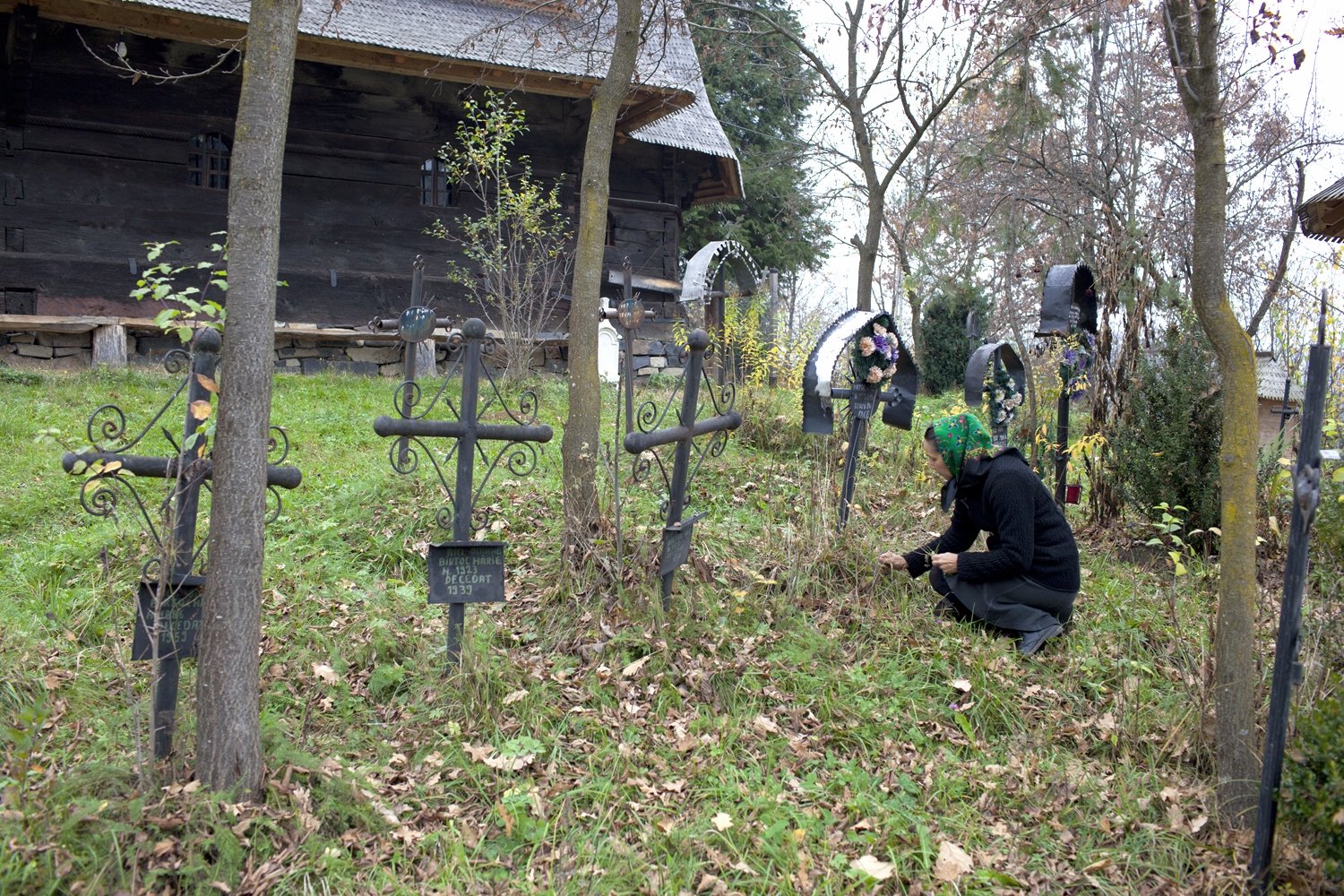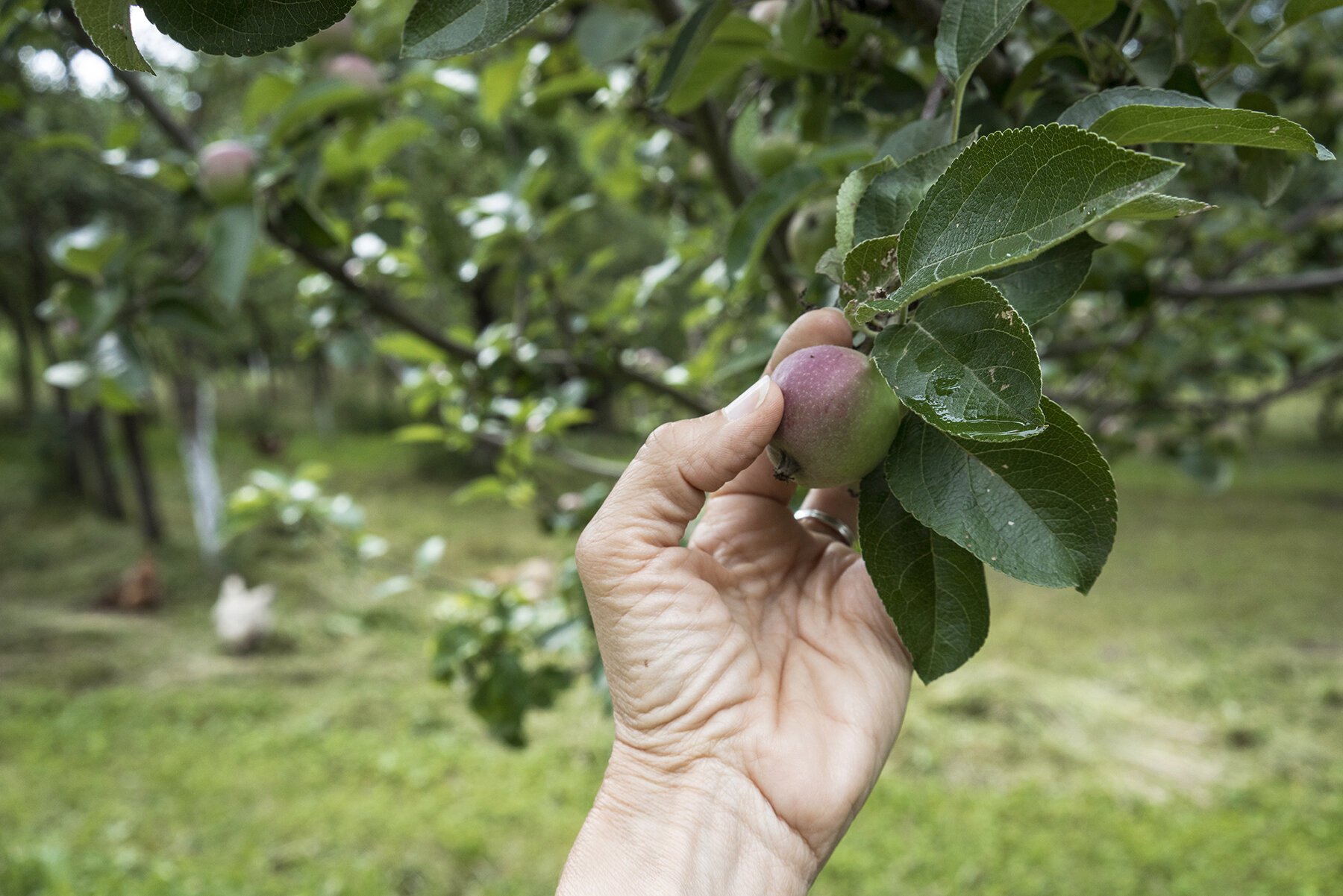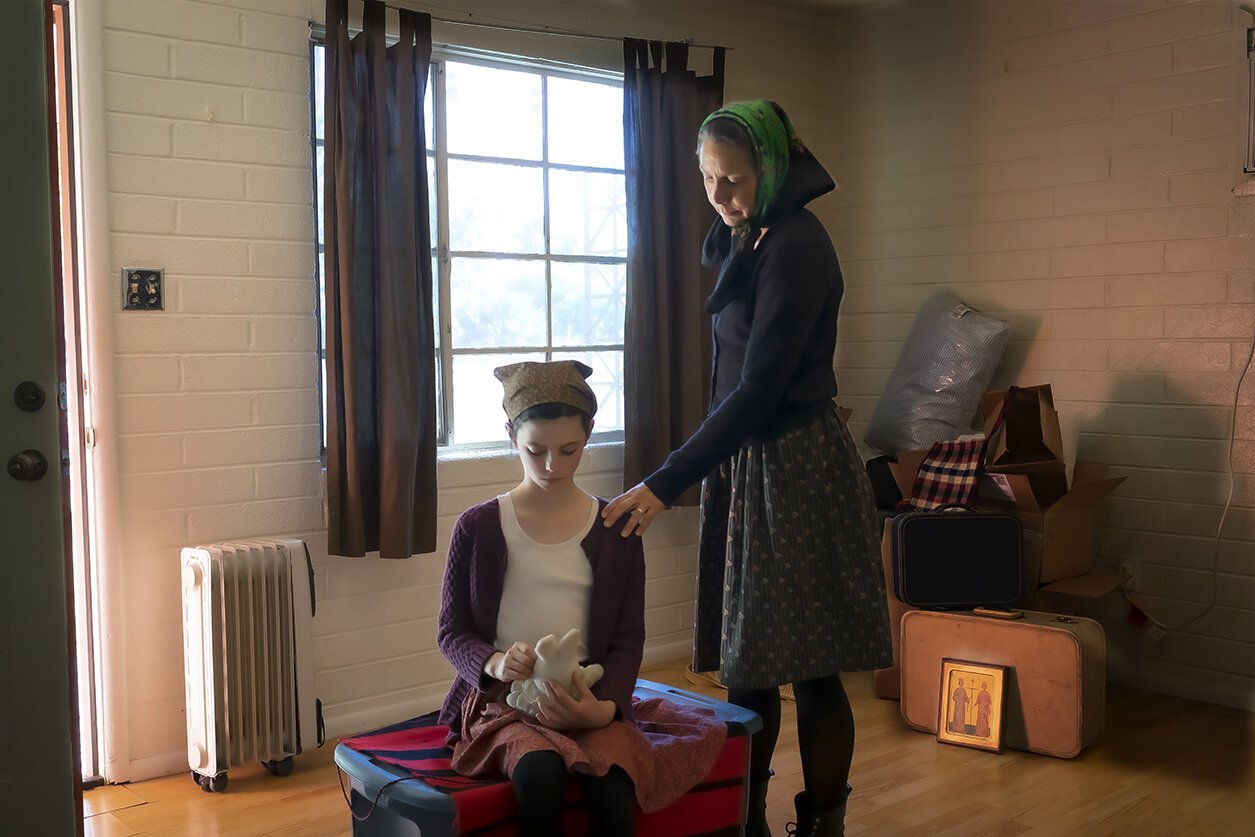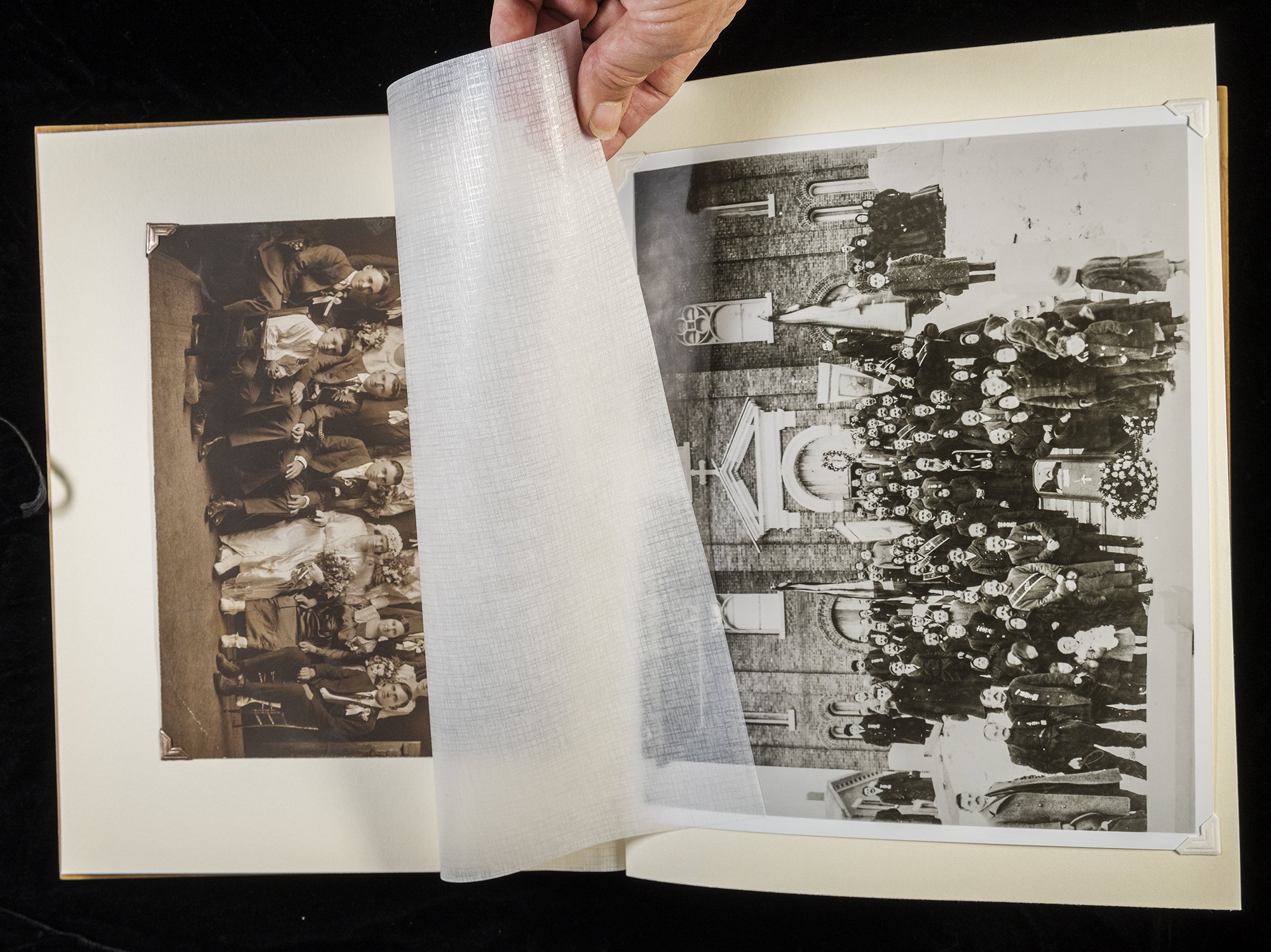Dear Grandmother,
(Bunica, in your language)We never met;
you died long before I was born. Yet I am your namesake.Do we have anything in common?I feel a kinship to you, your life flowing
through my veins.
But do we share anything besides
a name and DNA?We share my father, your only son.
He was inspiring to each of us.
Though I knew him for only 12 years.He died young, like his father.
Heart disease runs in the family.
You lost a husband, I lost my dad.I have that picture of
my grandfather’s funeral.
Him in his casket,
on display
outside the church.
All of you mourners crowded
around him,
on the steps with a cross
and the bell tower behind you.
I see your tiny figures.
Amongst them, You,
with your black dress and headscarf;My aunt, 12 years old,
like me,
Dumbstruck
by the sudden death
of a parent.
And the tiniest figure of all,
my father,
age 3.What did he remember of his father?
I don’t recall him talking much about him.
Or even you, for that matter.
I’m sorry.
But maybe I didn’t listen. The other photographs I have of you
are portraits.
The later one,
perhaps you remember,
is a group shot of you
and your descendants
from your first marriage
back in Romania.
You, still in your black
Headscarf,
seated aside your eldest daughter,
whom I heard was the last
to immigrate to the U.S.,
flanked by her four children,
your grandchildren
at the time.
Those are the people
that I would
come to know. Much later in life,
your granddaughter named
Emilia
rekindled my
Connection
to the family.
There’s that name again.
Sometimes shortened to
‘Em’
as in her case,
or
‘Emma’
in your case.
Or anglicized to
‘Emily’
in my case.
This particular
‘Emilia’
we called
‘Aunt Em.’“Long time I’ve spent
searching
for the kind of gold
that fills a void –
an empty page,
a hole in the heart.
Maybe it’s found in a name……”
The other portrait I have of you
is just a small
Photocopy
on cheap paper.
Aunt Em sent it to me,
before she died.
Where is the original?You are older here.
50s? 60s?
This is the only time I see you
without the headscarf.
When did you stop wearing it?
Or did someone,
perhaps a relative with a hand-held camera,
come upon you before you had a chance
to put it on?
I like the ruffled collar
on your dress.
Perhaps you were letting loose.
Somewhat. After a life of hardship;
two husbands dead,
a peasant’s existence in your
Homeland,
an arduous and anxious
Journey
to a new country;
back-breaking work there,
to make a living
without knowing the culture,
the language,
while raising two children,
Alone.I know my dad helped.
A lot.
He told me he started work
at age 5.
He sold apples door to door.
He got a paper route.
He searched for scrap metal
on the railroad tracks
near your home,
which he could exchange
for coins. This he did to supplement your
cleaning jobs
and your factory work.Besides the funeral photograph,
I have three other images
from my dad’s childhood.
One is a group portrait
of his cousin Loui’s wedding party.
It’s dated 1921,
so he must have been
about 8 years old.
He sits in the front row, on the far left.
What was his role in the wedding?
Ringbearer?Lastly.
My favorite photo is the vignetted
portrait of you and my dad,
probably done in a studio
when he was about 5.
It must have been a reach
Financially
to have this photo done
at that time.
My dad kept this picture
All the rest of his life,
under the glass on
the top of his dresser drawers.“Long time I’ve spent
searching
for the kind of gold
that fills a void –
an empty page,
a hole in the heart.
Maybe I find it in a face……”
A lucky stroke was when,
as an adult,
I discovered
my dad’s
Diary.
I hadn’t known that it existed.
Most of it is filled with poems
that he collected.
I never knew
he liked poetry.
Did you, Bunica?
But two pages
are a memorial to you,
after your death.
He writes of an endearing, enduring
relationship.
I learned more about
your lives
Together
than he ever told me.
How food was a comfort,
but often,
not enough.
That your house
had no hot, running water.
How he used to read to you,
because you could not.
That you still spoke
Romanian to each other.
And the only thing
you really enjoyed doing
was sewing or darning his clothes.
How you would wait,
seated at the window,
for him to come
Home
from school or work
each night.
That you had stairs
in the house
which were difficult
for you,
as you aged.This is all I can glean,
Bunica,
about your life
and my father’s early years,
from these six photographs,
Dad’s diary,
and some scattered stories
told through the years.Still - I wonder.
What do you and I have in common?
Would we get along if you were here now?
Or if I were there then?
Would you understand the things I do?
Would I like what you do? So –I’ve made up my own photographs.
I am you in your native country.
I am you as a new immigrant.
You are experiencing the world I live in.
You become part of my life. 

